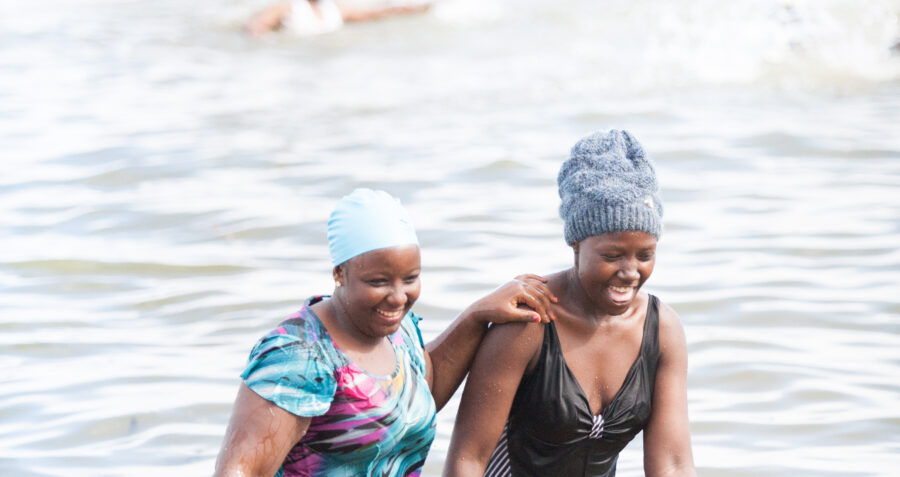Female genital schistosomiasis, prevention, diagnosis and treatment

Key information
- Organisation: LVCT Health
- Country: Kenya
- Region: Eastern and Southern Africa
- Stage of innovation: Stage 3: Pilot
- Start date: October 2020
- End date: September 2021
- Type of innovation: Service delivery innovation: new or different way of providing a service
- Budget: 169,000 USD
- Funder: COR-NTD
Summary of intervention
Female genital schistosomiasis (FGS), or bilharzia, affects up to 56 million women and girls across Africa. It is caused by parasitic worms in lakes, rivers and ponds where people bathe, wash clothes and collect water. Worms burrow into the skin and can cause inflammation, open sores and bleeding on the cervix and vagina. If untreated, the sores and lesions increase the risk of HIV, and FGS also speeds progression of HIV in women and girls who are not on HIV treatment. There is also risk of cervical cancer and other serious reproductive health issues, including infertility, ectopic pregnancy, miscarriage, stillbirth, and painful intercourse. Despite the link between FGS and HIV, there is a lack of integrated policy and programming, and a lack of funding.
LVCT Health carried out an implementation science project in Homa Bay County to assess the feasibility of leveraging community-based HIV prevention responses for increasing awareness and demand for prevention, diagnosis and treatment of FGS. The project confirmed that the integration of FGS in HIV and primary health care services was feasible and acceptable to both primary health workers and the community. LVCT also raised awareness of the need to integrate FGS within programme budgets, such as maternal and reproductive health and HIV.
This study demonstrated that FGS is endemic in the same areas and the same population at highest risk of HIV i.e. adolescent girls and young women. HIV programme interventions that include screening for STIs and cervical cancer provide an ideal platform to also screen for FGS and provide treatment. With minimal training, health workers can integrate this successfully into their programmes.
learnings
The role of community health volunteers (CHVs) is critical in addressing FGS. This project developed a training guide for CHVs and mentors to identify and refer for FGS. CHVs and mentors were able to carry out screening and referral as part of their routine tasks, therefore not adding too much to their workload. They were also critical in providing information and a safe space, reducing the stigma and shame associated with FGS and its symptoms. This is the first such guide globally and should be scaled up in other endemic areas.
The COVID 19 pandemic delayed project inception. Travel was restricted and community outreach not possible. Staff shortages and competing demands meant health workers were overwhelmed. Primary health workers and CHVs do not have and are not aware of registers where they can report cases of FGS and urinary schistosomiasis.
next steps
Next steps will be to advocate for the implementation of schistosomiasis-related policies according to the scientific evidence and for integration of FGS in HIV and sexual and reproductive health services.
LVCT health will implement a Cervical Cancer Screening Project in Homa Bay County from 2022 and will incorporate training on FGS pathology in the cervical cancer screening training.
sustainability
LVCT has initiated discussions with the ARISE project (Accelerated Resilient Innovative Sustainable NTD Elimination) funded by CIFF to scale up FGS integration in existing programmes through working with the Division of Neglected Tropical Diseases. They will use materials developed through this project and LVCT will provide technical support.
A manuscript will be submitted to a peer-reviewed journal in May 2022.
LVCT plans to scale up the training to more health providers in the HIV programme in LVCT-supported projects in Homa Bay County to integrate FGS screening and treatment in their HIV treatment and prevention programmes.
For more information, visit the LVCT website.

